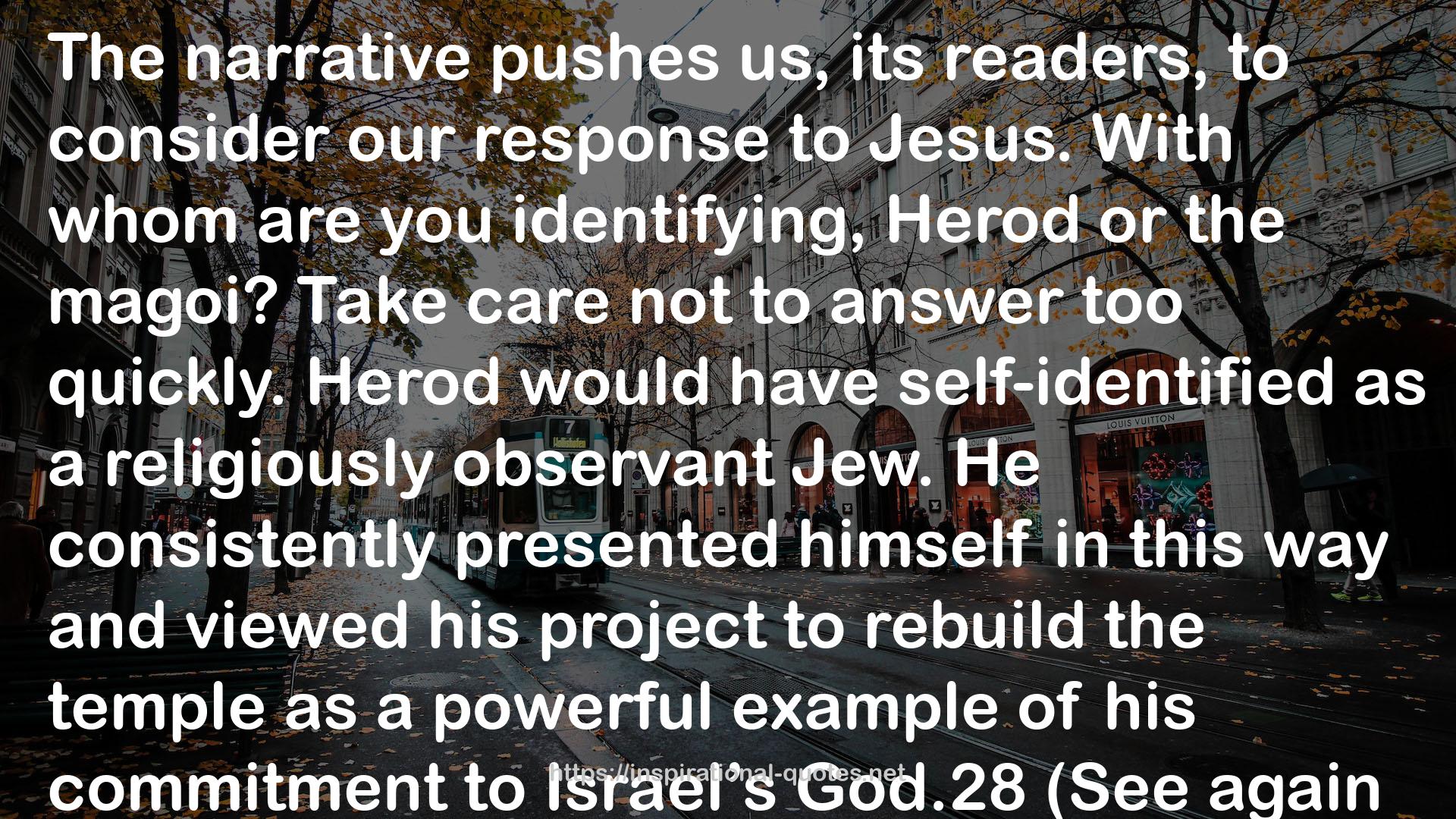" The narrative pushes us, its readers, to consider our response to Jesus. With whom are you identifying, Herod or the magoi? Take care not to answer too quickly. Herod would have self-identified as a religiously observant Jew. He consistently presented himself in this way and viewed his project to rebuild the temple as a powerful example of his commitment to Israel’s God.28 (See again the drawings of Herod’s temple on the insert following page 64.) He intensified his guilt, however, by using Scripture to locate the child. This act confirmed his knowledge that he was setting himself against God and his purposes in order to maintain his own rule and dynasty. His knowledge of God and Scripture led him not to submission and worship; instead, he prized self-preservation and self-rule above anything else, even God. He would not bow to the authority of a different Judean king, whether that king had God’s approval or not. Herod chose resistance and opposition to Jesus and God’s plan. Herod powerfully illustrates the fact that it’s not enough to identify outwardly with God’s people. It’s not enough to give sacrificially of your funds and energy to build God’s house (or temple) and to help others worship. It’s not enough to learn about God and his plan through his Scriptures. Every one of us is confronted daily with a choice of our will: Whom will we serve? For whom will we live? This is not the kind of decision that can be made once and for all (“I gave my life to God when I was a child”) or that can be determined by past or even present performance (“I have gone to church every Sunday for the last twenty years and regularly give money to the church”). It’s the kind of decision we must make afresh every day, and that entails more (but not less) than mere outward actions. For whom are you living today? "
― Andreas J. Köstenberger , The First Days of Jesus: The Story of the Incarnation
